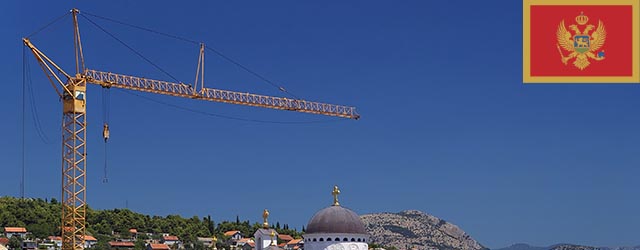Montenegro tries to keep the foreign direct investment environment as simple as possible.

Listening to Montenegro’s national anthem, one hears an uncomplicated, undramatic melody that moves slowly and deliberately to its conclusion without the kind of bombast associated with some anthems. That seems appropriate for a country that continues to pare down the legalities in an effort to stimulate foreign direct investment (FDI). “It’s quite simple and straightforward,” says Vladimir Daši, a partner at BDK Advokati Attorneys at Law, from his office in Belgrade, Serbia. “Their forex regime is not as complex as the Serbian forex regime,” he says. Foreign companies receive national treatment—they have equal standing in law with domestic companies.
Montenegro needs to keep the environment simple. It competes with other former Soviet-bloc countries for FDI and lags behind some of them in indicators such as governance and institutional quality, according to an analysis prepared for Global Finance by Mirjana Kuljak, assistant professor of business and economics at the University of Montenegro in Podgorica. Montenegro managed only limited development while part of the former Yugoslavia and entered the post-Soviet era with a lower level of industrialization than other former bloc nations.
Businesses face obstacles in “hard” infrastructure such as transportation facilities and in what Kuljak terms “soft infrastructure,” such as rule of law and corruption. The government’s priority is to expedite integration into the European economy and boost its chances of acceptance into the North Atlantic Treaty Organization (NATO) and the European Union (EU).
Moreover, Montenegro has almost exhausted its domestic drivers of development, such as efficient production practices, making FDI even more important for the economy, according to Kuljak.
For investors with a long-range view, the list of opportunities contains something for almost any interested company, according to Marc Allenet, a Podgorica-based investment adviser.
Not surprisingly, given Montenegro’s historic sites and spectacular vistas, tourism currently tops the list. The Abu Dhabi Financial Group and Capital Investment completed a huge mixed-use real estate development with a million square feet of retail and residential facilities, including a large luxury hotel.
According to Allenet, Montenegro has almost no corporate finance. Moreover, local banks do not have deep pools of financial resources for retail lending, leaving room for microfinance to supply domestic retail banking products.
Another sector may soon overtake tourism for the top spot in Montenegro FDI. The completion of an undersea cable linking Montenegro to Italy, scheduled for mid-2017, could make it an energy export hub and provide opportunities for independent power exporters, says Allenet.
The government’s status as a candidate for admission into the EU allows access to financing from the European Bank for Reconstruction and Development, the European Investment Bank and the International Finance Corporation. Some projects qualify for the Horizon 2020 program, designed to boost research and innovation.
In early October the government unveiled a new program of incentives targeting job creation and revitalization of government-owned assets. n
Vital Statistics |
|---|
|
Location: Balkans |
|
Neighbors: Bosnia and Herzegovina, Serbia, Albania, Kosovo, Croatia |
|
Capital city: Podgorica |
|
Population: 621,800 |
|
Official language: Montenegrin |
|
GDP per capita (2014): $7,371 |
|
GDP growth (2014): 1.5% |
|
Inflation (2014): -0.7% |
|
Currency: Euro |
|
Investment promotion agency: Montenegro Investment Promotion Agency |
|
Investment incentives available? Eight-year tax holiday in priority regions; shorter tax holidays in other regions in coastal areas; free-trade zone at Port of Bar; some fees in EBRD projects qualify for rebates. |
|
Ease of Doing Business rank (2015): 36 |
|
Corruption Perceptions Index rank (2014): 42 |
|
Political risk: Recently there have been anti-government protests in Podgorica, which could have medium-term implications for stability, security and the economy; uncertainty over Russian objections to Montenegro’s application to join NATO; political risk cleared: border dispute with Bosnia settled. |
|
Security risk: Militarily secure, but possible impact from influx of refugees in Serbia; Ukraine crisis seen as boosting Montenegro’s chances of joining NATO. |
PROS |
|---|
|
Clear Western orientation |
|
Good credit ratings |
|
Huge new Tivat Airport terminal recently given go-ahead |
|
Good travel sea and air links to other European capitals |
|
Emerging luxury travel destination |
CONS |
|---|
|
Media freedom guaranteed by law, but deteriorating amid reports of attacks on journalists |
|
High unemployment |
|
Small size and population, and therefore low tax base |
*Sources: Agence France Press, B2B Montenegro, Balkan Insight, BBC, Encyclopedia Britannica, EurActive.com, Gulf Business, Independent Balkan News Agency, Montenegrin National News Agency, Reuters, US State Department, Transparency International
For more information on Montenegro, check out our Country Economic Reports.



